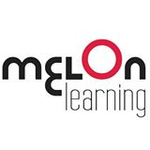Description

Easygenerator

Learning Suite 360
Comprehensive Overview: Easygenerator vs Learning Suite 360
Here’s a comprehensive overview of Easygenerator, Learning Suite 360, and Melon LMS, addressing their primary functions, target markets, market share, user base, and key differentiating factors:
Easygenerator
Primary Functions and Target Market:
- Functions: Easygenerator is a cloud-based e-learning authoring tool. Its primary functions are to help users create interactive and engaging online courses. It offers features like drag-and-drop designing, templates, quizzes, and collaborative tools for team-based course creation.
- Target Market: Easygenerator targets small to medium-sized businesses, educational institutions, and individual educators or trainers who need a straightforward tool to create courses without requiring advanced technical skills.
Market Share and User Base:
- While specific market share figures are not typically detailed for niche tools, Easygenerator enjoys popularity among non-technical users looking for simplicity combined with functionality. It competes with other authoring tools like Articulate and Adobe Captivate.
- It has a growing user base due to its user-friendly approach and the increasing need for accessible e-learning solutions.
Key Differentiating Factors:
- Ease of Use: Known for its intuitive interface, making it accessible for beginners.
- Collaborative Features: Allows multiple users to collaborate on course creation in real-time, which is not always available in competing tools.
- Cloud-Based: Being entirely online means users don’t need to install software and can access their projects from anywhere.
Learning Suite 360
Primary Functions and Target Market:
- Functions: Learning Suite 360 is an integrated suite of tools designed for comprehensive learning management, including content creation, delivery, tracking, and reporting. It is often part of a broader corporate learning platform.
- Target Market: Aimed at larger enterprises and corporate training departments, Learning Suite 360 serves organizations needing scalable solutions for managing vast libraries of learning content and diverse training programs.
Market Share and User Base:
- This suite is part of a competitive segment largely occupied by comprehensive LMS solutions such as SAP Litmos and Docebo. As part of a larger solution, its market share is associated with its parent company and its integrations.
- It is primarily used by corporations needing robust learning management systems that integrate with other enterprise tools.
Key Differentiating Factors:
- Integration Capabilities: Offers extensive integrations with other enterprise tools, providing seamless inclusion into existing IT ecosystems.
- Scalability: Well-suited for large-scale deployments across various departments and international operations.
- Comprehensive Features Set: Includes advanced analytics and reporting, which help companies measure the effectiveness of their training programs effectively.
Melon LMS
Primary Functions and Target Market:
- Functions: Melon LMS is a learning management system that facilitates the creation, delivery, management, and assessment of online training programs. It offers features such as course catalogs, quizzes, certifications, and user management.
- Target Market: Melon LMS is targeted primarily at small to mid-sized businesses, educational institutions, and organizations looking for flexible and customizable LMS solutions.
Market Share and User Base:
- Melon LMS caters to a specific segment within the broader LMS market and competes with other mid-range platforms like Moodle and LearnUpon.
- It has established a niche user base, particularly in markets looking for cost-effective and customizable LMS solutions.
Key Differentiating Factors:
- Customization: Offers significant flexibility to tailor the system to specific organizational needs and branding.
- User-Friendly Interface: Designed with a focus on ease of navigation and accessibility for both administrators and learners.
- Support and Services: Known for customer support and tailored services to help organizations effectively implement and manage their learning environments.
Comparative Summary
- All three products are tailored towards enhancing learning and training processes, but they serve different segments of the market. Easygenerator focuses on authoring for smaller teams, Learning Suite 360 is aimed at corporates needing comprehensive management, and Melon LMS provides customizable solutions for various organizational sizes.
- In terms of market share, Learning Suite 360 may have an advantage through brand association, especially if linked to a larger enterprise platform, whereas Easygenerator and Melon LMS compete on their specific strengths in ease of use and customization respectively.
- Differentiating factors center around usability (Easygenerator), integration and scalability (Learning Suite 360), and customization and support focus (Melon LMS), allowing each to appeal to their targeted user base effectively.
Contact Info

Year founded :
2013
+31 10 310 7100
Not Available
United Arab Emirates
http://www.linkedin.com/company/easygenerator

Year founded :
Not Available
Not Available
Not Available
Not Available
Not Available
Feature Similarity Breakdown: Easygenerator, Learning Suite 360
When comparing e-learning platforms like Easygenerator, Learning Suite 360, and Melon LMS, it's important to evaluate their common features, user interfaces, and unique offerings. Here's a breakdown across these aspects:
a) Common Core Features
-
Course Authoring and Management:
- All three platforms offer robust tools for creating and managing courses. This includes the ability to design course structures, structure content, and manage course libraries.
-
Assessment and Quizzes:
- They provide features for creating quizzes and assessments to evaluate learner progress. These may include multiple-choice questions, open-ended questions, and other assessment formats.
-
Reporting and Analytics:
- Each platform offers analytics and reporting tools to track learner progress, course completion rates, and other key metrics that help in measuring the effectiveness of the training programs.
-
Collaboration Tools:
- Features like discussion boards, forums, or group activities are common to encourage collaboration among learners.
-
Integration Capabilities:
- The ability to integrate with other systems such as HR software, CRMs, or data analytics tools is standard across these platforms.
b) User Interface Comparison
- Easygenerator:
- Known for its user-friendly and intuitive interface, Easygenerator is designed with a focus on ease of use for both creators and learners. Its drag-and-drop functionality simplifies the course creation process.
- Learning Suite 360:
- This platform often features a sophisticated and customizable interface. It might cater more to organizations looking for expansive features and flexibility, which can sometimes present a steeper learning curve.
- Melon LMS:
- Melon LMS typically offers a straightforward and clean UI. It's generally praised for being easy to navigate, making it accessible even for those with minimal technical expertise.
c) Unique Features
-
Easygenerator:
- One of its unique selling points is its strong emphasis on rapid course creation. It empowers subject matter experts to create content without the need for in-depth technical skills. The platform's simplicity and supportive templates are significant advantages.
-
Learning Suite 360:
- This platform may offer advanced customization options and robust enterprise solutions, such as comprehensive integration with other enterprise systems. It’s also known for supporting more complex learning scenarios and content delivery methods.
-
Melon LMS:
- Melon LMS could stand out with specific compliance training features or localizations, focusing on certain industries or markets. Its cost-effectiveness and ease of administration might also be appealing to smaller organizations or startups.
In summary, while these platforms share many core features common to learning management systems, their differentiating factors often lie in ease of use, customization, and specific features tailored to particular user needs or market segments. Organizations typically choose based on these nuances, aligning the platform's offerings with their specific training goals and technical capacities.
Features

Not Available

Not Available
Best Fit Use Cases: Easygenerator, Learning Suite 360
When evaluating Easygenerator, Learning Suite 360, and Melon LMS, it's essential to recognize that each of these platforms specializes in different aspects of learning and development, catering to specific needs in terms of business types, scenarios, and industry verticals.
a) Easygenerator
Best Fit Use Cases:
- Small to Medium Enterprises (SMEs) and Startups: Easygenerator is an intuitive and user-friendly tool that facilitates rapid course creation. It’s ideal for organizations that may lack extensive resources or expertise in instructional design.
- Employee Training and Onboarding: Companies looking to quickly create and deploy training materials for onboarding or skill development will benefit from Easygenerator’s simplicity and template-driven approach.
- Subject Matter Experts (SMEs) Creating Content: The platform is well-suited for SMEs who need to translate their expertise into e-learning content without requiring deep technical skills in e-learning design or development.
Catering to Different Vertical and Company Sizes:
- Education, Corporate Training, and Consulting: These sectors benefit from Easygenerator’s speed and ease of use.
- Small to Mid-sized Companies: Its cost-effective approach makes it an ideal fit for businesses with limited budgets.
b) Learning Suite 360
Best Fit Use Cases:
- Large Enterprises with Comprehensive Learning Needs: Learning Suite 360 is typically used by larger organizations that require a robust, scalable platform capable of handling vast amounts of learning content.
- Blended Learning Environments: Companies that need a platform integrating traditional classroom learning and digital courses find Learning Suite 360 advantageous.
- Tracking and Reporting: Organizations that need detailed analytics and reporting on learner performance and course effectiveness will appreciate the robust features of Learning Suite 360.
Catering to Different Vertical and Company Sizes:
- Enterprise-Level Organizations: Particularly those in sectors like finance, healthcare, and technology, where compliance and detailed tracking are crucial.
- Global Corporations: Companies operating across multiple regions find the scalability and versatility of Learning Suite 360 beneficial.
c) Melon LMS
Best Fit Use Cases:
- Medium to Large Enterprises with Specific Customization Needs: Melon LMS offers significant flexibility and customization options, making it suitable for businesses with specific needs that out-of-the-box solutions might not address.
- Compliance Training and Certification: Industries with strict regulatory requirements, such as healthcare or manufacturing, can leverage Melon LMS for compliance training due to its robust tracking and certification features.
- Multi-Tenancy Needs: Organizations that require distinct learning environments for various departments or clients will benefit from Melon LMS’s multi-tenancy capabilities.
Catering to Different Vertical and Company Sizes:
- Healthcare, Manufacturing, and Government: These industries often have specific regulatory requirements that Melon LMS is well-equipped to handle.
- Medium to Large Companies with Complex Training Requirements: Companies that need flexibility and customization benefit from the adaptability of Melon LMS.
In summary, Easygenerator is best for SMEs and content creators with rapid development needs, Learning Suite 360 is beneficial for large enterprises requiring comprehensive, scalable solutions, and Melon LMS is ideal for companies needing extensive customization and compliance tracking. Each product caters to different verticals, with their unique strengths aligning with specific business sizes and industry demands.
Pricing

Pricing Not Available

Pricing Not Available
Metrics History
Metrics History
Comparing teamSize across companies
Conclusion & Final Verdict: Easygenerator vs Learning Suite 360
In evaluating Easygenerator, Learning Suite 360, and Melon LMS, it's essential to weigh their features, costs, ease of use, customer support, customization, and scalability. Here's a comprehensive conclusion and verdict on these platforms:
a) Best Overall Value
Easygenerator offers the best overall value for organizations prioritizing ease of use and quick content creation. Its intuitive interface and focus on rapid authoring make it ideal for companies without a dedicated eLearning development team. Learning Suite 360 shines in comprehensive functionality and robust course management, making it suitable for larger organizations with complex training needs. Melon LMS, while affordable and flexible, may lack some high-end features of its competitors, but it is a solid choice for smaller businesses or those with straightforward requirements.
b) Pros and Cons
Easygenerator:
- Pros:
- User-friendly interface
- Rapid course creation features
- Strong support for non-technical users
- Mobile-friendly content
- Cons:
- Limited advanced features
- Less suitable for very large organizations or complex eLearning needs
Learning Suite 360:
- Pros:
- Comprehensive suite with powerful features
- Extensive customization and reporting capabilities
- Suitable for large-scale deployments
- Strong integration options with other platforms
- Cons:
- Steeper learning curve
- Higher costs, which might not be feasible for small businesses
Melon LMS:
- Pros:
- Cost-effective and flexible
- User-friendly interface
- Good customer support
- Adequate functionality for small to mid-sized organizations
- Cons:
- Fewer advanced features compared to Learning Suite 360
- Might require additional tools or plugins for specific use cases
c) Specific Recommendations
-
For Large Enterprises: Learning Suite 360 is recommended due to its extensive feature set, customization capabilities, and support for large-scale requirements.
-
For Small to Medium Businesses: Easygenerator is excellent for companies looking for a quick, easy-to-use tool for content creation. Melon LMS can also be a good fit if cost is a critical consideration and advanced features are less critical.
-
For Rapid Deployment: Easygenerator is the best choice if the primary need is to get up and running quickly, with minimal training for content creators.
-
For Feature-Rich Experience: Choose Learning Suite 360 if your organization needs a comprehensive LMS with robust reporting, integration, and customization options.
Ultimately, the decision should be based on organizational size, specific needs, budget constraints, and the complexity of the training programs required. Users should leverage trial versions and demos of each platform to determine the best fit for their circumstances.
Add to compare
Add similar companies



